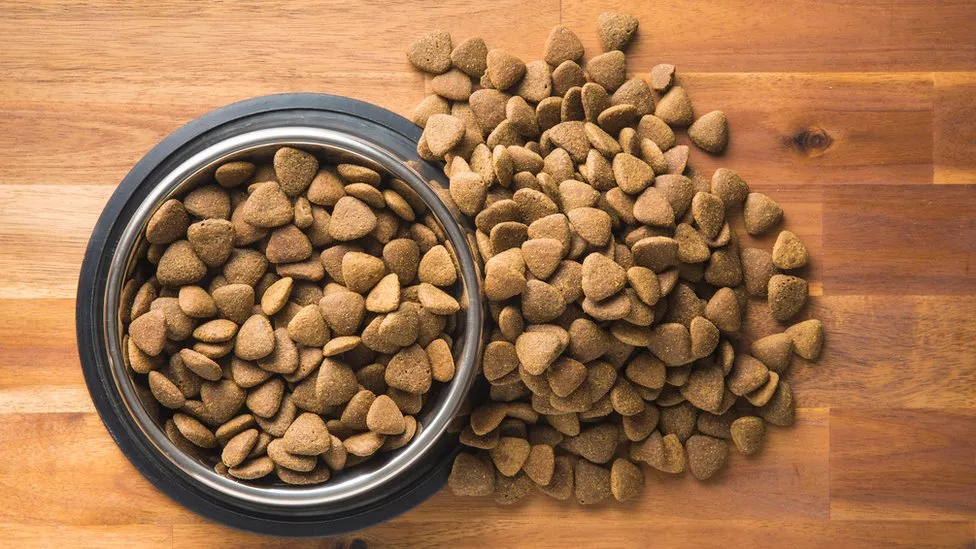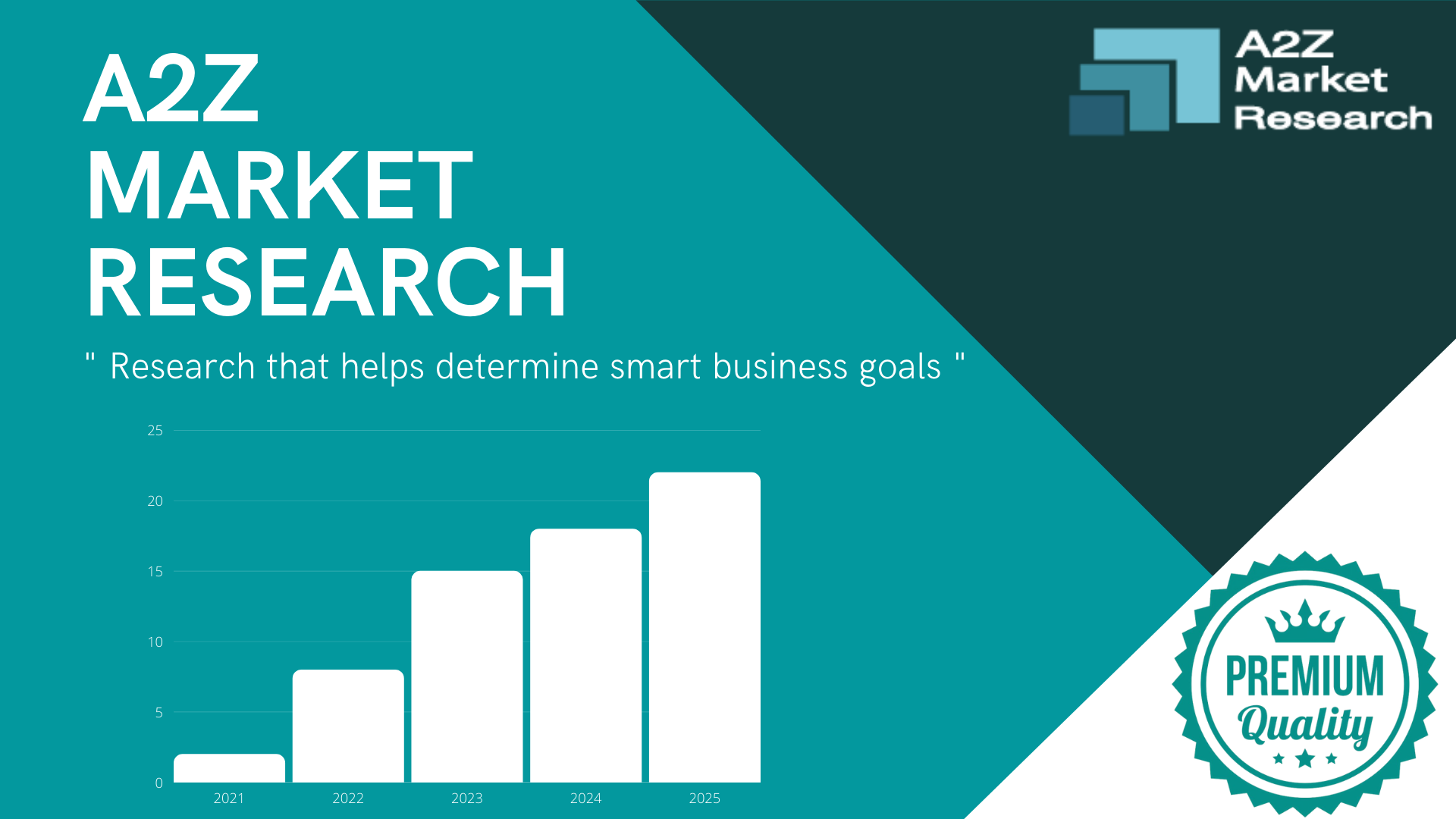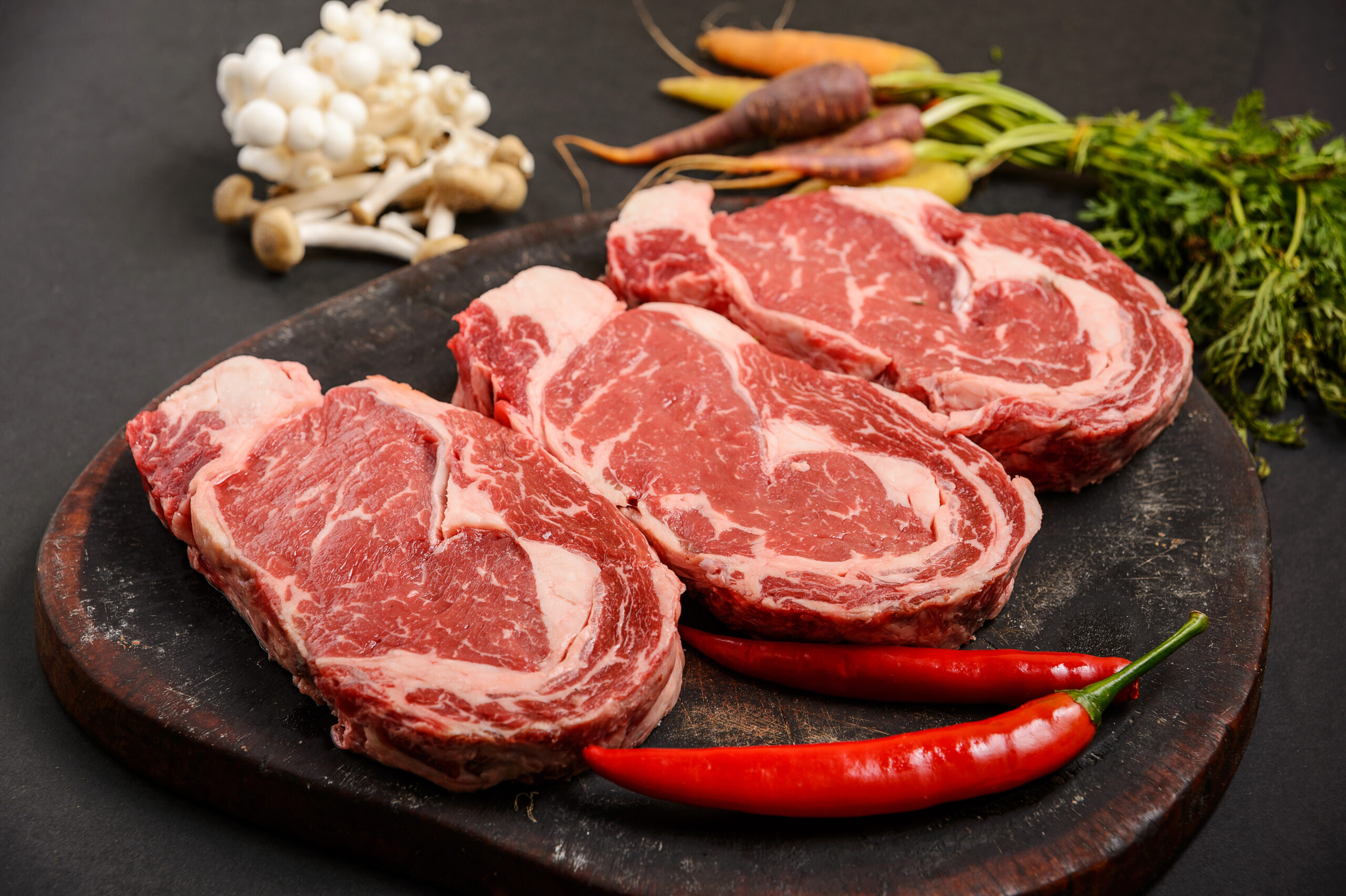By Katherine Latham
Nicola Wordsworth says her pet Tibetan Terrier Bertie shares her dietary regime.
“I’m a flexitarian – on-off vegan and vegetarian. I don’t do dairy, and I rarely do meat,” says the 54-year-old from Kent.
“Bertie is on-off vegan and vegetarian too. And when he has meat in his food, I ensure it is sustainable, low mileage and good quality, same as for me.”

A UK study earlier this year found that 61% of pet owners now want to know about the environmental impact of the food they buy for their animal. Given the footprint of the pet food industry, this may well be a good thing.
The global pet food sector emits more greenhouse gases than countries, including Mozambique and the Philippines, according to one report.
The same paper also calculated that every year an area double the size of the UK is used to produce dry pet food for cats and dogs, to say nothing of wet foods.

** Click here to read the full text **









